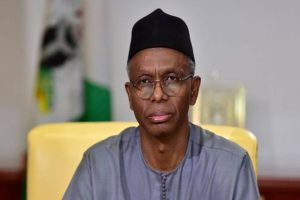The Nigerian Bar Association (NBA) has raised alarm over the continued non-compliance by some state governors with the Supreme Court judgment affirming the constitutional autonomy of local governments across the country.
Speaking in Ibadan during the 7th edition of the Justice Aderemi Annual Lecture Series (JAALS), held at the Afe Babalola Law Hub, NBA President Mazi Afam Osigwe expressed disappointment that one year after the ruling, many states are still flouting the court’s directive.
Osigwe described the situation as a reflection of the weakening respect for the rule of law, warning that the judgment “appears to be incapable of enforcement” due to widespread disregard by state governments. He cited examples in Edo and Osun States, where local governments continue to be administered by caretaker committees appointed by governors, despite the Supreme Court’s pronouncement.
“Despite the judgment of the Supreme Court, many local governments in Nigeria are still run by caretaker committees imposed by governors, who have refused to conduct elections,” Osigwe said.
He further criticised the failure to pay funds directly to local governments, as stipulated by the court, describing the enforcement mechanism as “very weak”.
“Many state governments don’t even care that such a judgment exists, because they do not want democracy to thrive at the local government level,” he added.
Osigwe stressed the importance of political will and nationwide commitment to uphold judicial authority, noting that without compliance from political actors—particularly governors—the judgment remains ineffective.
Also speaking at the event, Dr Tolu Aderemi, Secretary of the Justice Aderemi Foundation and son of the late jurist, emphasised the importance of national conversations on federalism and power dynamics. He said the foundation deliberately chose the theme, “The Politics of Federalism, Power Dynamics among the Tiers of Government”, to spark critical dialogue ahead of the constitutional review process.
He urged stakeholders to identify and prioritise key issues for amendment before the National Assembly convenes public hearings on constitutional reform.
“As we prepare for real engagement on constitutional amendment, we must first distil the critical areas that require urgent attention,” Aderemi said.





